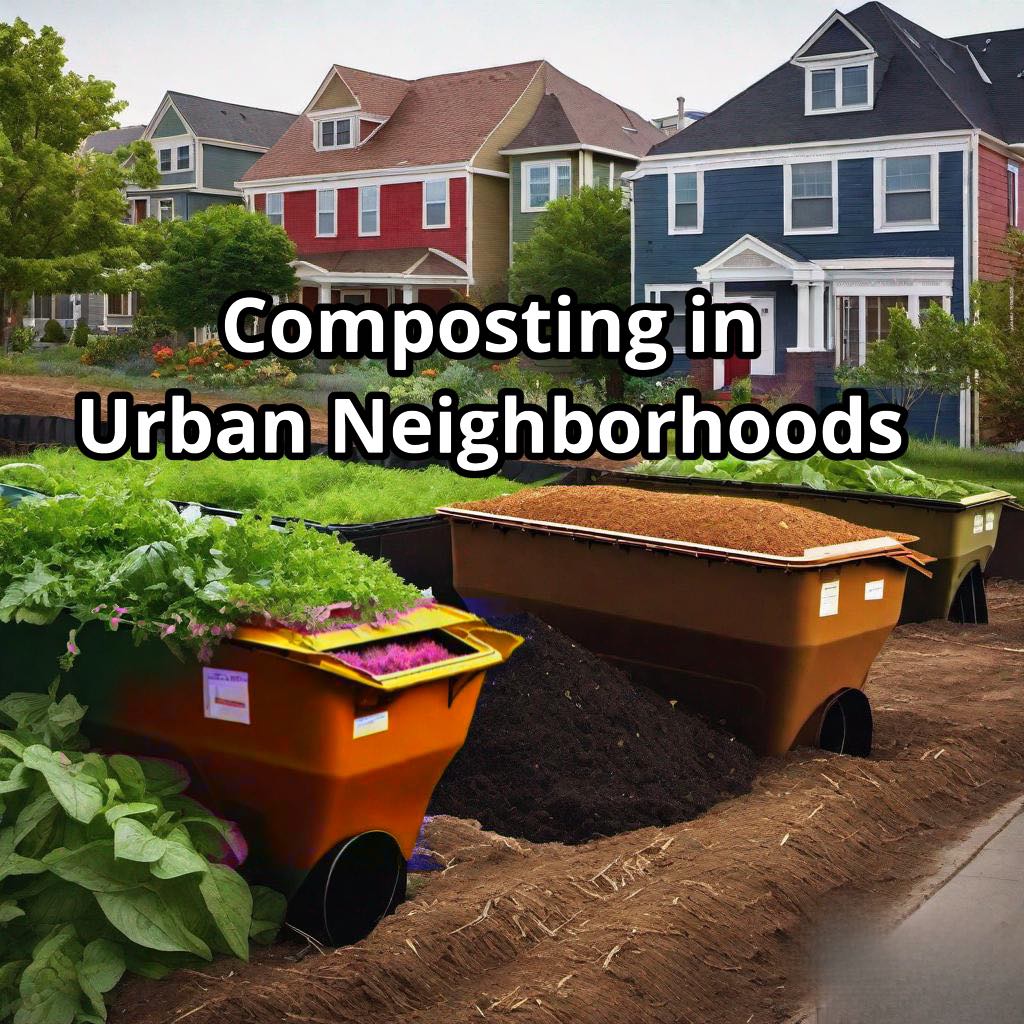In the heart of bustling urban landscapes, a quiet revolution is taking place—one that involves more than just concrete and skyscrapers. Urban communities are increasingly recognizing the power of composting, not just as an environmentally responsible practice, but as a means to foster community growth, sustainability, and a deeper sense of connection.
The Urban Composting Movement: A Catalyst for Change
As cities continue to grow, so does the need for sustainable waste management solutions. Traditional waste disposal methods often strain landfills and contribute to environmental degradation. Enter composting—an age-old practice that is being reimagined in the urban context. Composting involves the decomposition of organic materials, such as food scraps, yard waste, and even paper products, into nutrient-rich soil amendments.
Benefits Beyond the Bin: Community-Wide Impact
Composting goes beyond diverting waste from landfills—it offers a range of benefits that enrich urban communities in profound ways:
- Reduced Environmental Footprint: Composting reduces the amount of organic waste sent to landfills, which produce harmful methane emissions. By transforming waste into valuable soil, urban areas contribute to lowering their carbon footprint and mitigating the impacts of climate change.
- Local Soil Enrichment: The resulting compost serves as a natural fertilizer, enriching soil and promoting healthier urban green spaces. Parks, community gardens, and even streetscapes thrive with the nutrients provided by locally sourced compost.
- Community Building: Composting creates opportunities for residents to come together in shared spaces, such as community gardens or composting hubs. Working towards a common goal fosters a sense of unity and encourages interaction among diverse community members.
- Educational Platform: Urban composting programs offer educational resources that teach residents about sustainable practices, the importance of waste reduction, and the value of local ecosystems. This knowledge empowers individuals to make conscious choices.
- Economic Savings: Implementing composting programs can lead to reduced waste disposal costs for municipalities. Furthermore, the resulting compost can be used in city beautification projects, reducing the need for purchasing commercial fertilizers.
- Food Security: Composting creates an opportunity for residents to grow their own produce in community gardens or urban farms, enhancing local food security and promoting healthier eating habits.
Cultivating the Composting Culture: Strategies for Success
For urban communities to fully harness the benefits of composting, a multi-faceted approach is crucial:
- Infrastructure: Develop accessible composting facilities, whether on a neighborhood scale or within apartment complexes, to make composting convenient for all residents.
- Education: Launch community workshops, webinars, and educational campaigns to inform residents about composting methods, benefits, and proper practices.
- Collaboration: Collaborate with local schools, businesses, and organizations to create a city-wide composting network that engages various sectors of the community.
- Incentives: Offer incentives such as reduced waste disposal fees, compost giveaways, or discounts at local businesses to encourage residents to participate actively.
- Accessibility: Design composting programs that cater to diverse populations, including low-income households, ensuring equal access to the benefits of composting.
Conclusion: Nurturing a Greener, Stronger Urban Future
Composting in urban communities transcends the act of recycling food scraps—it cultivates a resilient community ecosystem rooted in sustainability and shared responsibility. By embracing composting, urban areas can restore the balance between human activities and the environment, all while fostering a profound sense of belonging and connection among residents. As the urban composting movement gains momentum, it has the potential to transform not only waste management practices but also the very fabric of our cities, nurturing growth, sustainability, and a sense of unity that extends far beyond the compost bin.



